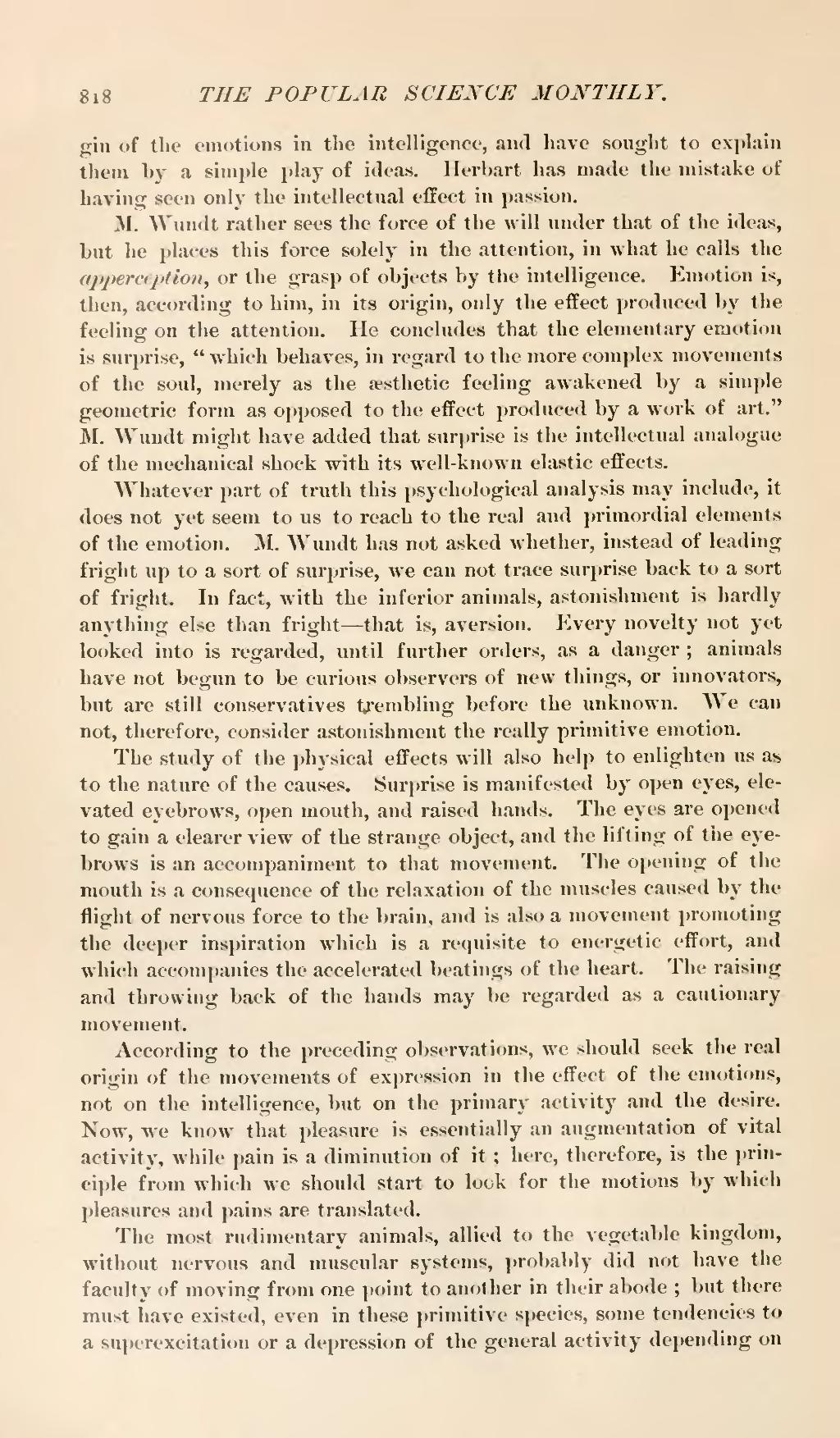gin of the emotions in the intelligence, and have sought to explain them by a simple play of ideas. Herbart has made the mistake of having seen only the intellectual effect in passion.
M. Wundt rather sees the force of the will under that of the ideas, but he places this force solely in the attention, in what he calls the apperception, or the grasp of objects by the intelligence. Emotion is, then, according to him, in its origin, only the effect produced by the feeling on the attention. He concludes that the elementary emotion is surprise, "which behaves, in regard to the more complex movements of the soul, merely as the æsthetic feeling awakened by a simple geometric form as opposed to the effect produced by a work of art." M. Wundt might have added that surprise is the intellectual analogue of the mechanical shock with its well-known elastic effects.
Whatever part of truth this psychological analysis may include, it does not yet seem to us to reach to the real and primordial elements of the emotion. M. Wundt has not asked whether, instead of leading fright up to a sort of surprise, we can not trace surprise back to a sort of fright. In fact, with the inferior animals, astonishment is hardly anything else than fright—that is, aversion. Every novelty not yet looked into is regarded, until further orders, as a danger; animals have not begun to be curious observers of new things, or innovators, but are still conservatives trembling before the unknown. We can not, therefore, consider astonishment the really primitive emotion.
The study of the physical effects will also help to enlighten us as to the nature of the causes. Surprise is manifested by open eyes, elevated eyebrows, open mouth, and raised hands. The eyes are opened to gain a clearer view of the strange object, and the lifting of the eyebrows is an accompaniment to that movement. The opening of the mouth is a consequence of the relaxation of the muscles caused by the flight of nervous force to the brain, and is also a movement promoting the deeper inspiration which is a requisite to energetic effort, and which accompanies the accelerated beatings of the heart. The raising and throwing back of the hands may be regarded as a cautionary movement.
According to the preceding observations, we should seek the real origin of the movements of expression in the effect of the emotions, not on the intelligence, but on the primary activity and the desire. Now, we know that pleasure is essentially an augmentation of vital activity, while pain is a diminution of it; here, therefore, is the principle from which we should start to look for the motions by which pleasures and pains are translated.
The most rudimentary animals, allied to the vegetable kingdom, without nervous and muscular systems, probably did not have the faculty of moving from one point to another in their abode; but there must have existed, even in these primitive species, some tendencies to a superexcitation or a depression of the general activity depending on
